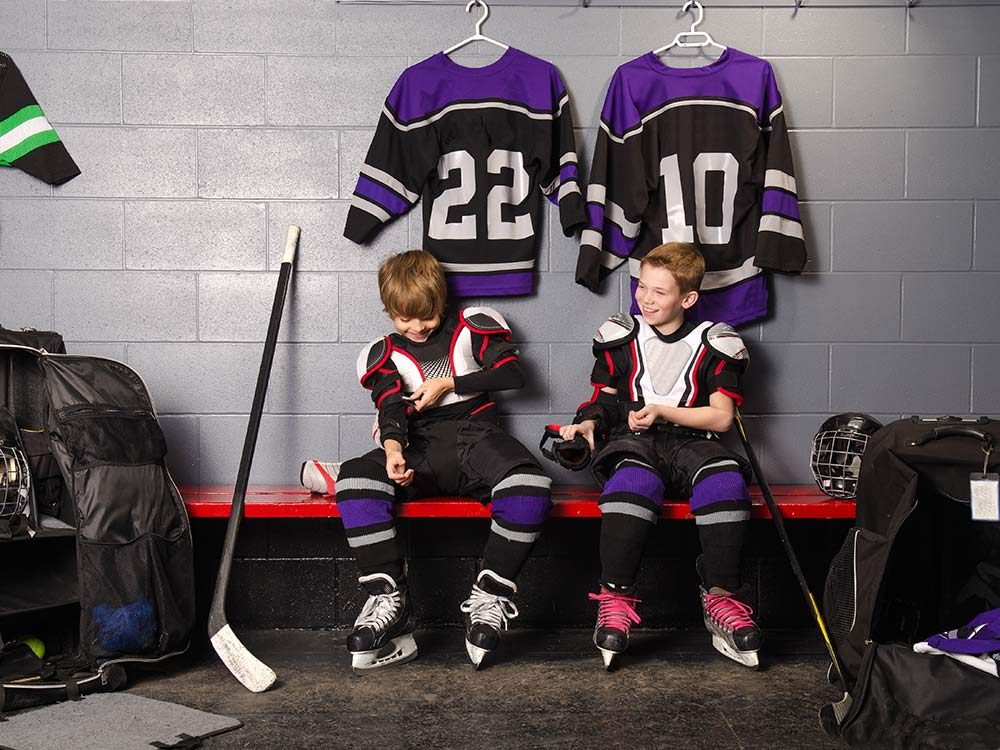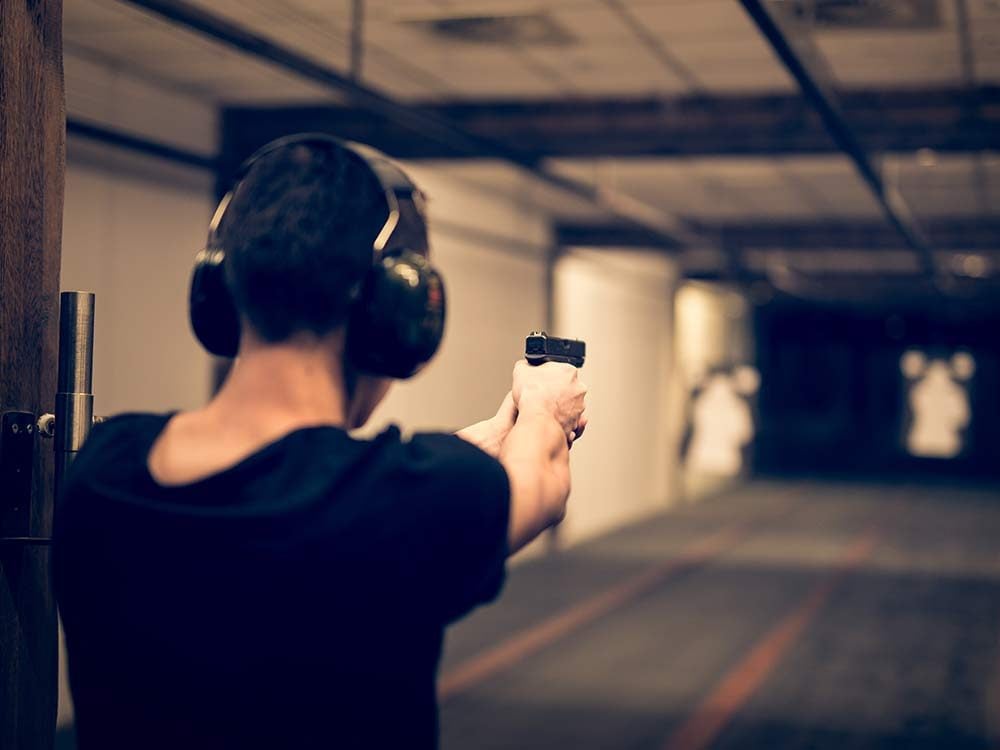
Myths About Canada: We’re Obsessed with Hockey
There are few things more Canadian than a scene of kids playing hockey on a frozen pond. But is hockey really a national obsession?
According to Statistics Canada, just 11 per cent of boys and girls age five to 14 in our country play hockey as a regular activity—that’s fewer than swimming (12 per cent) and far less than soccer (20 per cent). Among Canadian adults, the most popular sporting activity is golf, which first bumped hockey out of the top spot in 1998.
Attention is also waning among fans. A book titled The Emerging Millennials, by University of Lethbridge sociologist Reginald Bibby, found that teenagers’ interest in the NHL has dropped from 45 per cent to 35 per cent in the past two decades, and that only three in ten adults follow professional hockey very or fairly closely.
Bibby says the sports media assume their own interest in hockey is shared by the vast majority of Canadians. In fact, if CBC gets two million viewers for a Hockey Night in Canada telecast (a typical number), it means 94 per cent of the people in the country found something else to do with their time.
“Hockey has a relatively small number of devoted followers,” says Bibby. “It’s hardly a sport that captivates a nation.”

Myths About Canada: We’re a Beacon of Tolerance
The first country to adopt multiculturalism as an official government policy in 1971, Canada is considered the proverbial cultural mosaic. But just how tolerant are we?
In a 2010 survey for the Canadian Defence and Foreign Affairs Institute, 27 per cent of Canadians felt that the number of immigrants and refugees arriving in Canada each year was a “critical threat” to Canadian interests.
When the Washington, D.C.-based Pew Research Centre surveyed 47 countries about their attitudes towards immigration in 2007, majorities in 44 nations—including Canada—felt that “we should restrict and control the entry of people into our country more than we do now.” Sixty-two per cent of Canadians concurred.
Moreover, 30 per cent of Canadians (and 41 per cent of people age 55-plus) told a 2010 survey by Angus Reid that multiculturalism has been bad for Canada. In the same survey, 33 per cent of respondents felt that Canadian society is intolerant towards Muslims, and 24 per cent believe we are intolerant towards immigrants from South Asia.
Jeffrey Reitz, a professor in Ethnic Immigration and Pluralism Studies at the University of Toronto, says there’s little truth behind the belief that Canadian multiculturalism means immigrants receive more favourable treatment here than they do in the United States, with its melting-pot approach. In his book, The Illusion of Difference, he compares the integration of immigrants in Canada and the States, and finds few differences in the attitudes towards newcomers.
While it may be comforting to believe we’re much more open and inclusive than those in other countries, “the evidence just doesn’t support that,” says Reitz.

Myths About Canada: Our Health-Care is a National Treasure
Universal health-care is a source of pride among Canadians. We prefer our health-care system to that in the United States by a rate of ten to one, according to a 2009 Harris/Decima survey. But do we harbour doubts about it?
A 2010 report by the Health Council of Canada noted that 52 per cent of Canadians believe “fundamental changes” are required to make our health-care system work better; ten per cent want it completely rebuilt.
The report drew upon the Commonwealth Fund International Health Policy Survey, which looks at attitudes in 11 Western countries, including Canada, the United States, the U.K., Australia, France and Sweden. In the 2010 survey, Canada ranked poorly in timeliness of care and was tied for last place with Norway when it came to the ability of patients to get doctors’ appointments the same or next day. Moreover, according to the Fraser Institute, a Vancouver-based think tank, wait times for specialists in Canada rose to just over 18 weeks in 2010—96 percent longer than those in 1993.
In a 2010 survey for the Canadian Medical Association (CMA), close to 40 per cent of respondents gave low or failing marks when asked to grade access to the following: family doctors, emergency-room services, modern diagnostic equipment and medical specialists. In addition, 75 per cent believed the quality of health care will deteriorate as a result of strain on the system as the population ages.

Myths About Canada: We’re More Informed than Americans
Canadians often accuse Americans of being ignorant—especially about our country. But when it comes to Canadian history, it turns out we’re not particularly well-informed, either.
In 2009, the Dominion Institute (now the Historica-Dominion Institute, an independent body dedicated to promoting a greater knowledge of Canadian heritage) asked Canadians to identify ten famous figures in photographs. Only 41 per cent of Canadians could identify Sir John A. Macdonald (our first prime minister), and just 19 per cent recognized Tommy Douglas (the “father of Medicare”). About one quarter of Canadians couldn’t name Pierre Trudeau or Wayne Gretzky.
In another Dominion Institute survey, 47 per cent of Canadians did not know the first line of the national anthem and 39 per cent couldn’t identify the year of Confederation (1867).
Desmond Morton, a historian, author and emeritus professor at McGill University, isn’t surprised. He is unhappy with the way history is taught in our schools. Too often, he says, our history is presented as “a memory to be shed, instead of a tool to enrich our adulthood.”

Myths About Canada: We Don’t Like Guns
In a 2007 international Small Arms Survey conducted by a Geneva-based research institute, the United States topped the list for civilian gun ownership (non-police and non-military), with 88.8 guns for every 100 citizens. Canadians, in contrast, own 30.8 guns per 100 citizens.
But Canada actually ranked 13th out of the 178 nations surveyed. Per capita, according to the survey, we have double the estimated gun ownership rate of Australia and Mexico, and five times the rate of England.
Canadians have a “long-held belief” about the right to own and use firearms for hunting, target practice and defence, says Sheldon Clare, president of the Edmonton-based National Firearms Association (NFA). “Canadian gun cultures are well entrenched,” he adds.
Though our gun laws are stricter than those in the States, Clare suggests that Canadian gun owners have a high level of distrust of firearms bureaucracy. “This distrust,” he says, “has led to widespread non-compliance with Canadian firearm laws by average Canadians—and represents a fundamental change in the myth of Canadians as being those who embrace peace, order and good government.”